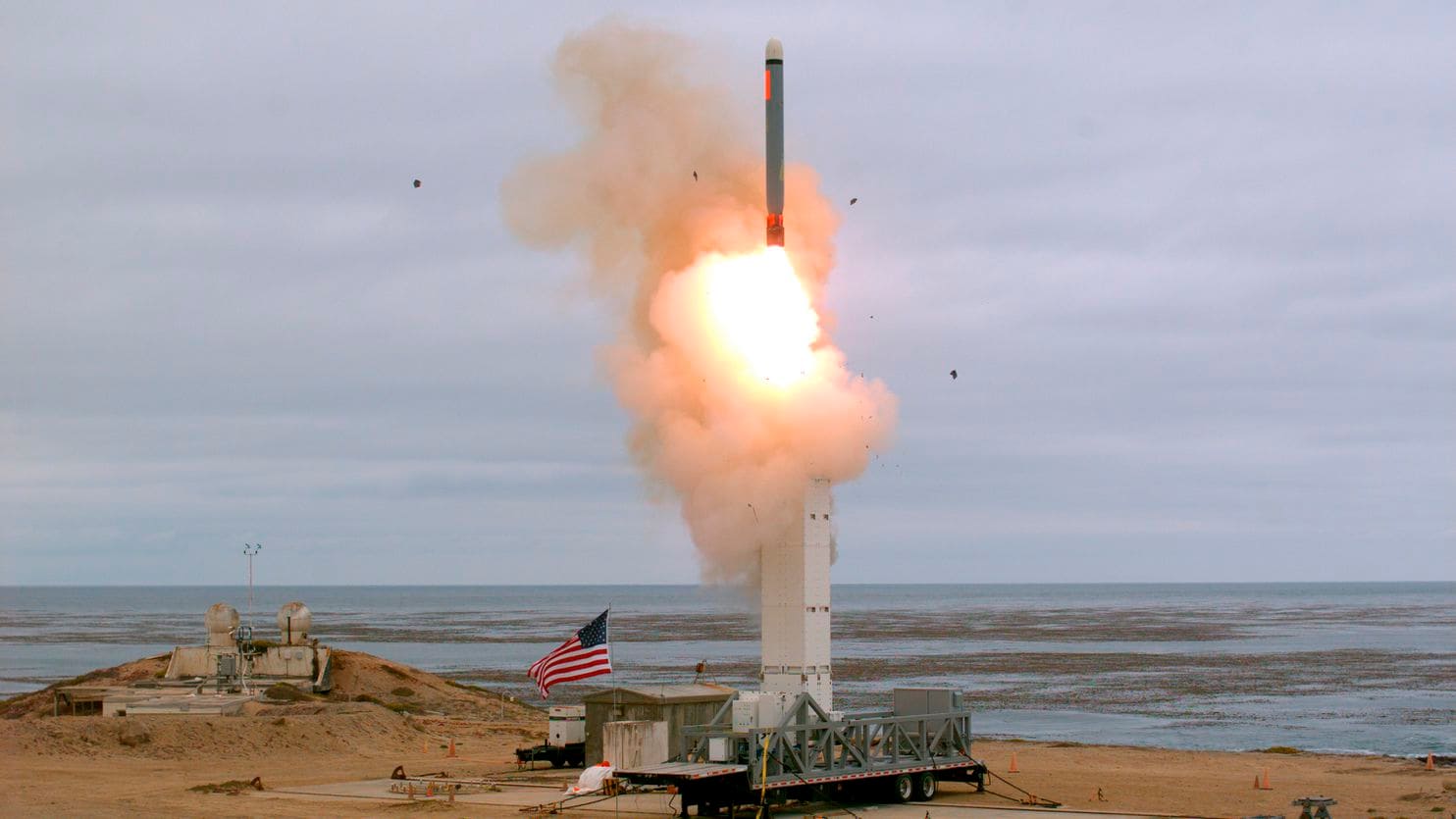“This is a very clear sign that the United States and Russia are on the verge of a new missile race,” — Daryl Kimball, executive director of the Arms Control Association.
BY MISSY RYAN | washingtonpost.com

The U.S. military has conducted a test launch of an intermediate-range cruise missile for the first time since withdrawing from a Cold War-era arms-control pact with Russia earlier this month, the Pentagon said Monday.
The conventional missile, which was fired from a mobile ground launcher and flew more than 500 kilometers (310 miles) before hitting its target, launched off the coast of California on Sunday afternoon, the Pentagon said in a statement.
“Data collected and lessons learned from this test will inform the Department of Defense’s development of future intermediate-range capabilities,” the statement said.
The test follows the Trump administration’s formal withdrawal Aug. 2 from the Intermediate-Range Nuclear Forces Treaty (INF), a 1987 agreement that banned Washington and Moscow from testing, producing or deploying missiles with ranges from 500 to 5,500 kilometers (310 to 3,400 miles).
U.S. officials had long alleged that Russia acted in violation of the pact by deploying prohibited weapons.
“This is a very clear sign that the United States and Russia are on the verge of a new missile race,” said Daryl Kimball, executive director of the Arms Control Association, which opposed withdrawing from the treaty. He said Russia would match deployment of such weapons “missile for missile” and noted that while the weapon being tested was conventional, it could be armed with nuclear warheads.
Russia, which has denied violating the treaty, has suspended its participation in the pact.
Kimball noted that the feasibility of such plans is uncertain because lawmakers in the House have sought to ensure the Pentagon cannot spend money on developing new intermediate-range missiles.
It’s unclear whether Pentagon funding for such missiles will be granted after House-Senate consultations this year.
Pentagon officials also see withdrawal from the treaty as a chance to respond to China’s development of a significant intermediate-range missile arsenal. The Pentagon is trying to reorient toward competition with China and, to a lesser extent, Russia after two decades fighting insurgent conflicts.
